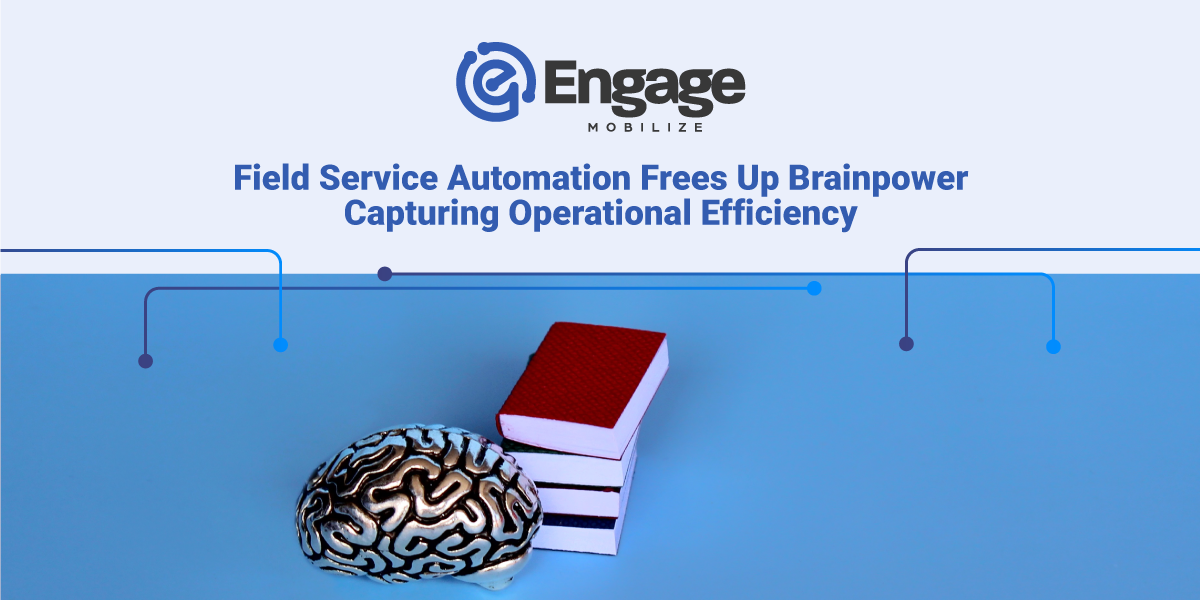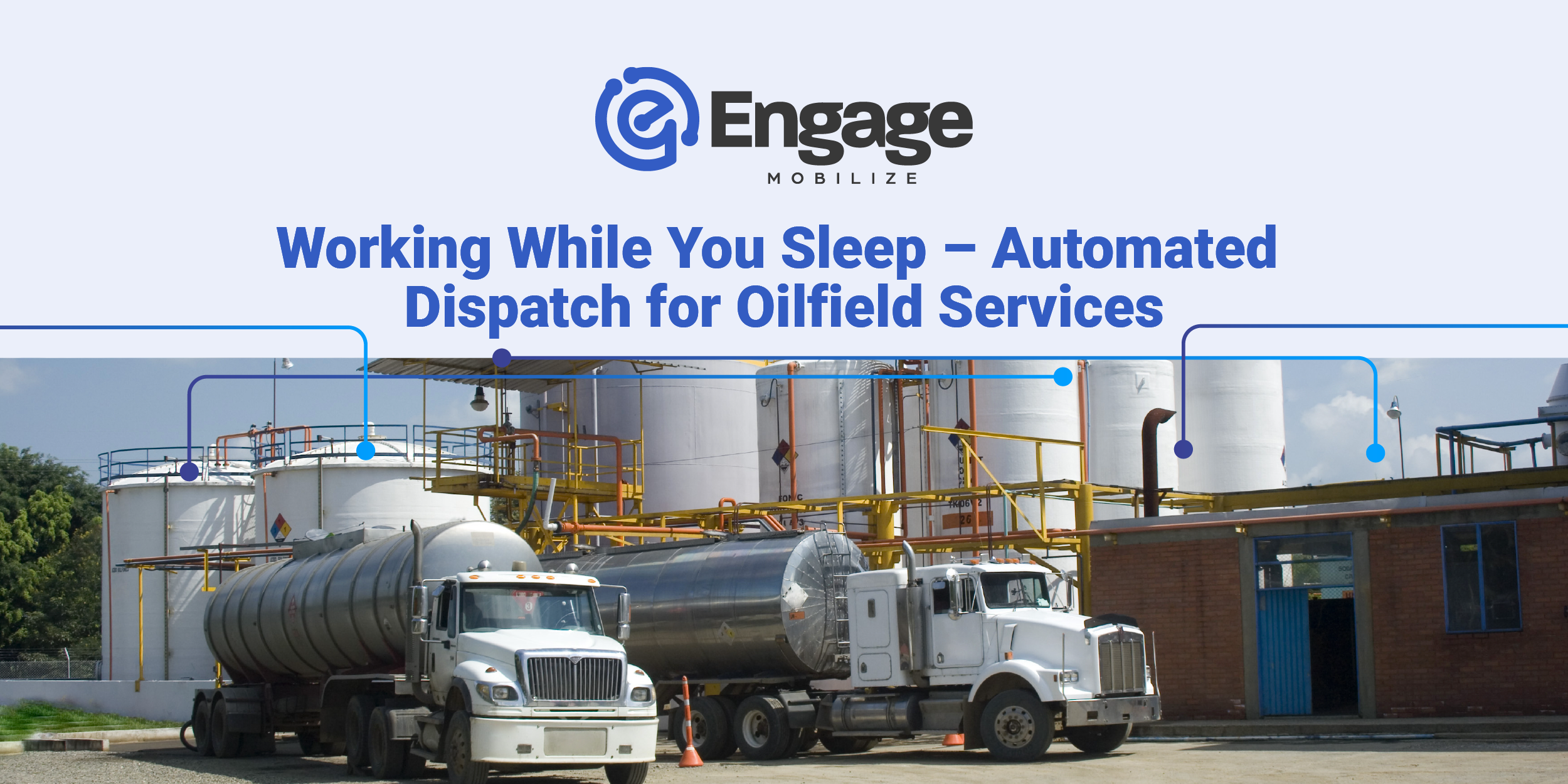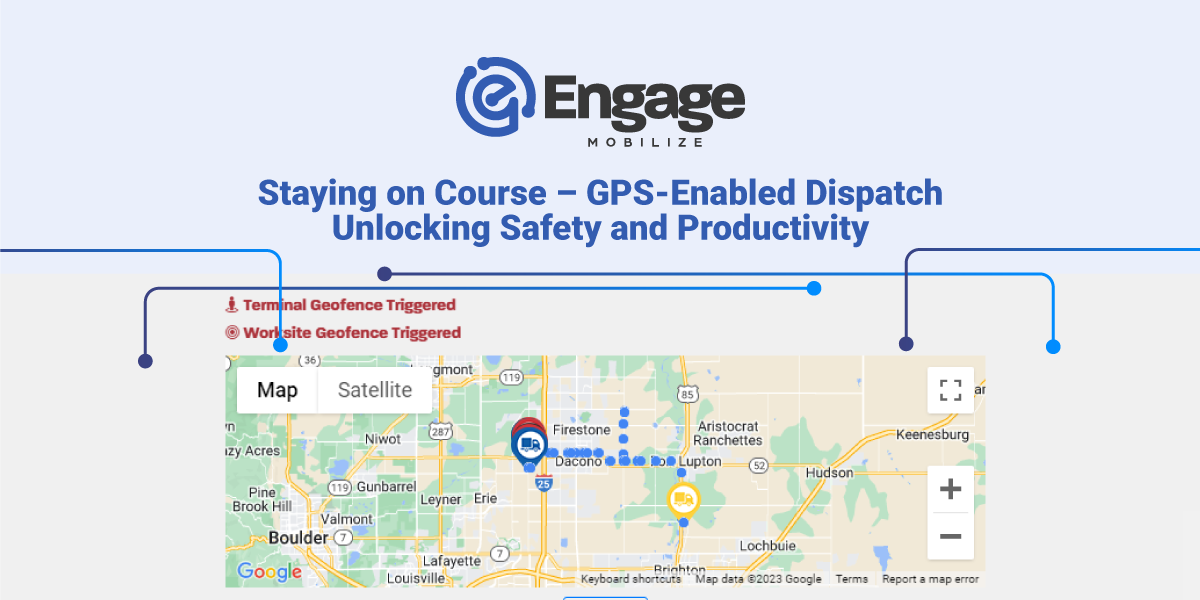
Free Your Mind – Working Smarter with Intelligent Field Operations Software
Practice makes perfect, the saying goes, but is it true?
In his book, Outliers (2008), Malcolm Gladwell popularized the so-called 10,000 hours rule. Gladwell theorizes that a typical person requires 10,000 hours of practice to technically master something, such as playing the violin, hitting three-point basketball shots or writing computer software code (although once mastered, some people may still perform it better than others).
The initial learning and mastering of a task are a function of processing in the Frontal Cortex part of the brain. Once mastered, a routine job can be processed in a different part of the brain, freeing the Frontal Cortex for more learning and giving it the rest or downtime it needs to perform higher-level cognitive tasks. Mastering routine tasks is known as automaticity; as you develop it, your brain starts to work differently.
Automaticity is the ability to do things without occupying the mind with the low-level details required, allowing it to become an automatic response pattern or habit. It is usually the result of learning, repetition and practice.
In highly dynamic and cyclical industries like Oil & Gas, generating operational efficiencies and boosting productivity are constant priorities. When change comes, it usually arrives unannounced and can significantly disrupt operations, making the ability to respond quickly to changing conditions a competitive advantage. People with Oil & Gas workflow task automaticity can help your company do just that, but it takes time. At least 10,000 hours if Gladwell is right!
Given the average workweek, 10,000 hours is equivalent to approximately five years of employment in the same job. That is a tall order in an industry characterized by high turnover and a talent shortage. Automation can help accelerate your company’s learning curve, much like internal automaticity.
Turbocharging Your Learning Curve
Automating tasks using Intelligent Field Operations Software has the potential to free up cognitive processing space in your company in much the same way internal automaticity does. It allows routine and predictable tasks to be performed quickly and reliably without much effort from a person, effectively quickening the learning curve and allowing people to focus on higher-order cognitive functions that software can't yet handle.
Examples of Automation and Freeing-Up Brainpower
Produced Water Hauling. Automating produced water hauling workflows at High Plains Transport (HPT) allowed water dispatchers to elevate their focus and make HPT a go-to service company in the Bakken. Getting HPT and their operator customers on a single, digital platform (i.e., E-Ticketing for Water Hauling), water dispatchers spent less time making calls and sending text messages, freeing more time focusing on high-profile, high-profit service jobs.
Crude Oil Hauling. Using the Predictive Dispatch capability in E-Ticketing for Crude Hauling, Chevron was able to reduce crude hauling short loads (loads less than 180 barrels) to 21%, down from 32% in the four months prior to using the Engage Mobilize platform on operated wells. Automating the collection, measurement and dispatch of tank volumes helped crude oil dispatchers focus on higher-level tasks, respond to more complex service jobs and do them faster.
Automated Water Hauling Ticket Approvals. Using SCADA validation integrated with the Engage Mobilize E-Ticketing platform, Bedrock Energy Partners was able to automatically approve more than 75% of water tickets. Automating the routine review and proofing of water tickets saved each Foreman 2-3 hours weekly and improved billing accuracy. The technology-based solution transformed Bedrock’s operations, boosting productivity and trust with haulers.
Production Accounting. Engage Mobilize's Missing Ticket Report automatically identifies missing oil run tickets. Leveraging the data input by crude haulers into the Engage Mobilize E-Ticketing platform, our technology automatically monitors run ticket creation after each crude oil loadout. By cross-referencing tank-level data with generated run tickets, the Missing Ticket Report instantly identifies any discrepancies. This digital capability eliminates time spent hunting down paper tickets, freeing Production Accounting staff to focus on analysis and troubleshooting and minimizes or eliminates the risk of a missing crude run ticket.
Benefits of Automation and Freeing-Up Brainpower
The ways automating routine tasks frees-up brainpower for higher level functioning include:
Conservation of Cognitive Resources. The human brain has limited cognitive resources available at any given time. Routine tasks, even if simple, require some amount of these resources. By automating them, we conserve our cognitive resources for more demanding tasks.
Reduction in Cognitive Load. Routine tasks, when repeated frequently, add to our cognitive load, making it harder to focus on more complex activities. By automating these tasks, we can reduce this load, making it easier to think critically and creatively.
Minimizing Decision Fatigue. Each decision we make, no matter how small, depletes our cognitive energy. If we automate routine decisions (like manually proofing field tickets for water hauling or crude hauling), we can save our decision-making capacity for more significant, impactful choices.
Reduced Stress and Anxiety. Continuously remembering and acting on routine tasks can be a source of stress and anxiety, especially if there's a risk of forgetting them. Automation can provide some peace of mind, reduce boredom and lessen burnout.
Enhanced Focus. Without the distraction of routine tasks, individuals can immerse themselves more deeply in tasks that require critical thinking, problem-solving or creativity. This state of deep focus, often referred to as "flow," is where some of our best cognitive work can happen.
Time Creation. Automation can save a significant amount of time. This newfound time can be channeled into learning new things, thinking deeply about problems, or simply resting — which is essential for cognitive health and developing new ways of viewing problems and analyzing data.
Strengthening of Cognitive Muscles. When the brain is relieved of routine tasks, it's like taking off training weights. The brain can then use its full capacity to tackle complex problems. Over time, these "brain muscles" can get stronger by frequently engaging in high-level cognitive activities, making it easier to think critically and creatively.
Adaptability. As one becomes familiar with automating tasks and leveraging technology, they often become more adaptable to new technologies and ways of thinking. This adaptability is a higher-level cognitive function that can help your organization quickly adapt to changing conditions.
Summary
“Working smarter” is not just an empty buzzword but a tangible benefit of developing organizational automaticity by automating field service workflows. When the manual performance of routine and repetitive tasks is replaced with automated workflows, controls and digital processes, people have more time to use higher levels cognitive brainpower. That brainpower can be used to analyze information, solve problems, develop new solutions, and adapt to changing conditions. We encourage you to think about the possibilities!
Contact us today at (720) 575-6695 or Sales@engage-m.com to learn how Intelligent Field Automation Software from Engage Mobilize can help you achieve new levels of operational efficiency and create a competitive advantage.
Are you ready to learn more?
We’re ready to talk to you about the specific cost savings, workflow efficiencies and data insights that come from taking your field operations digital.
Share this
Similar Stories

Working While You Sleep – Automated Dispatch for Oilfield Services

Never Miss an Oil Run Ticket: Engage Mobilize's Missing Ticket Report

